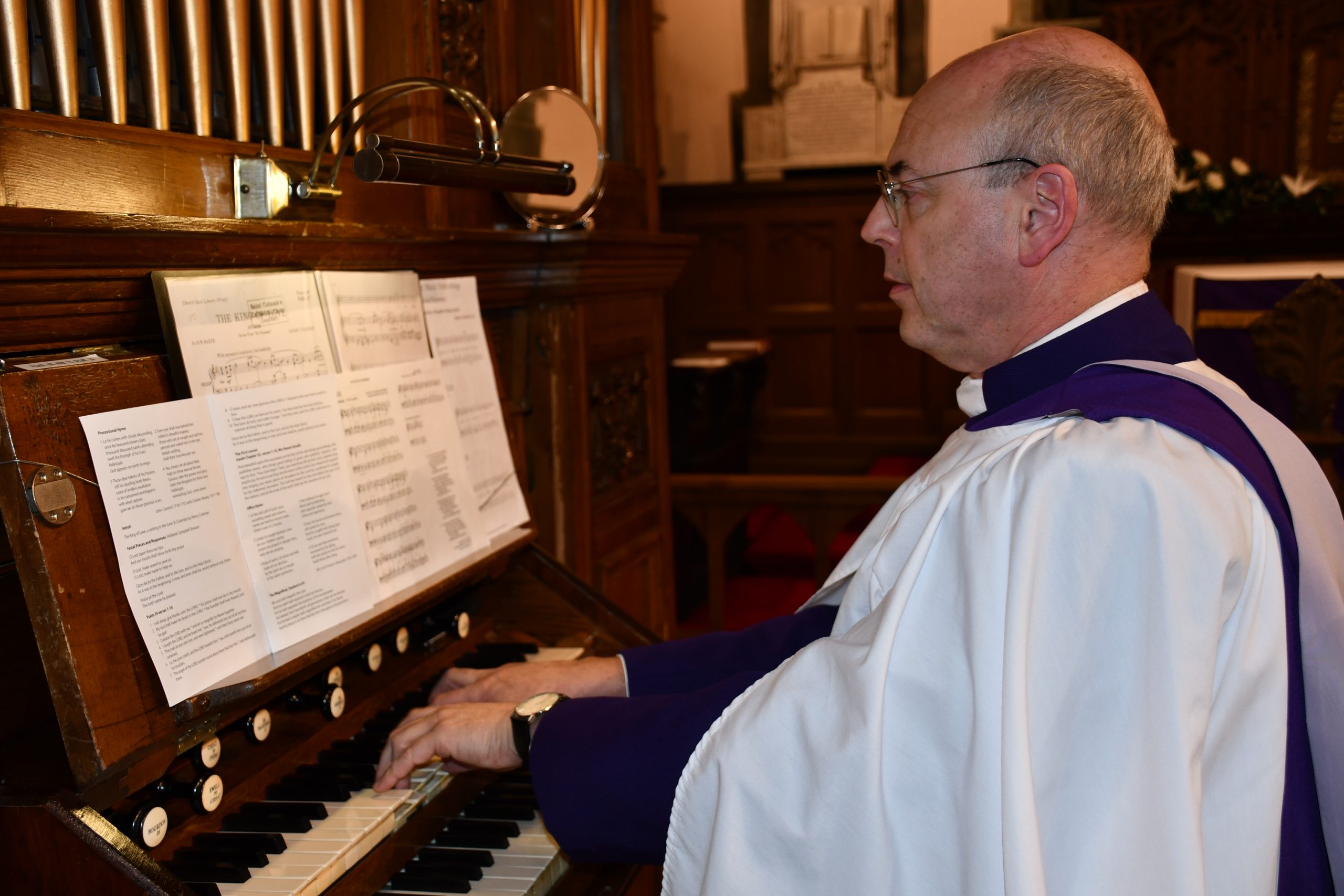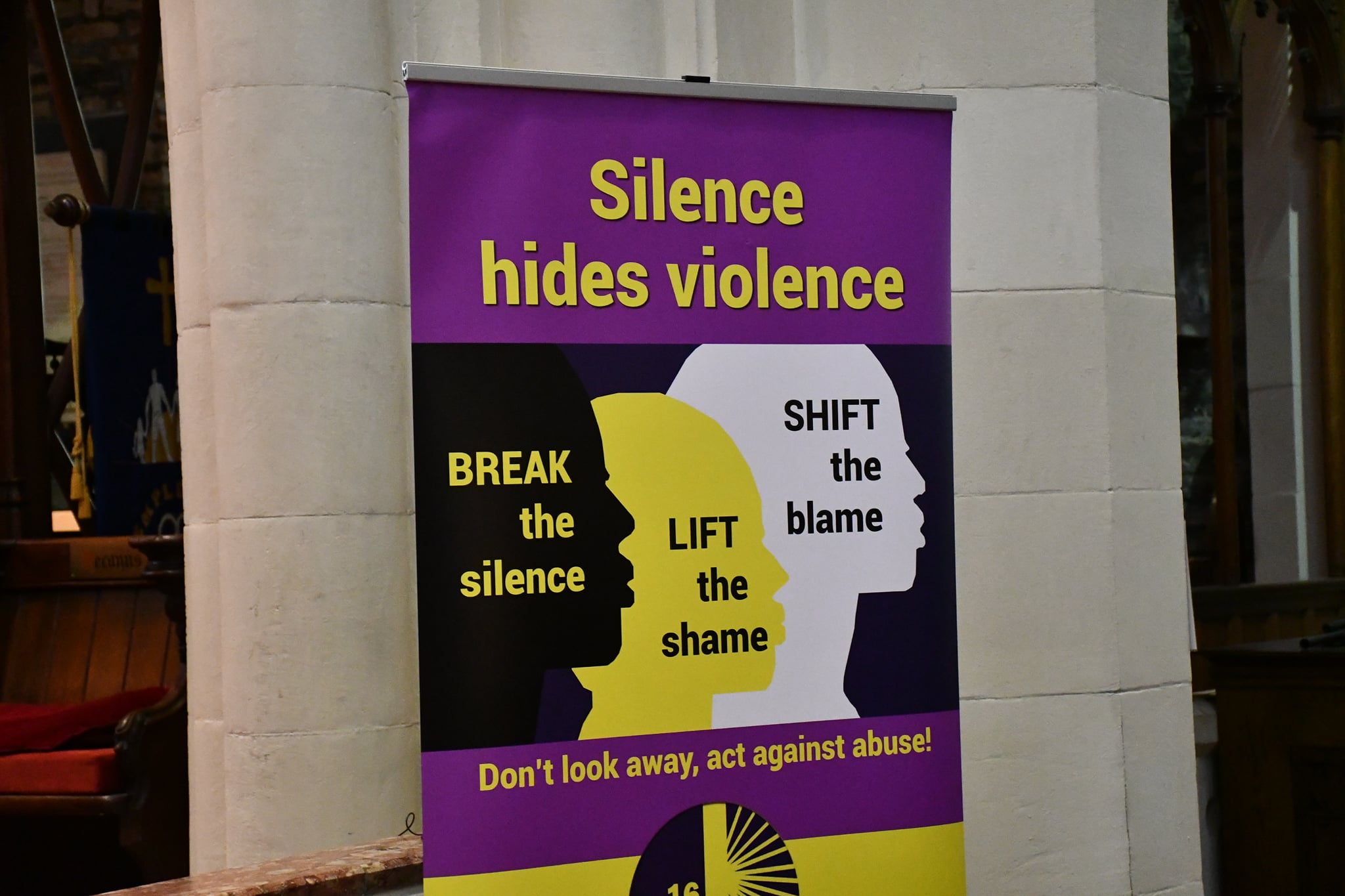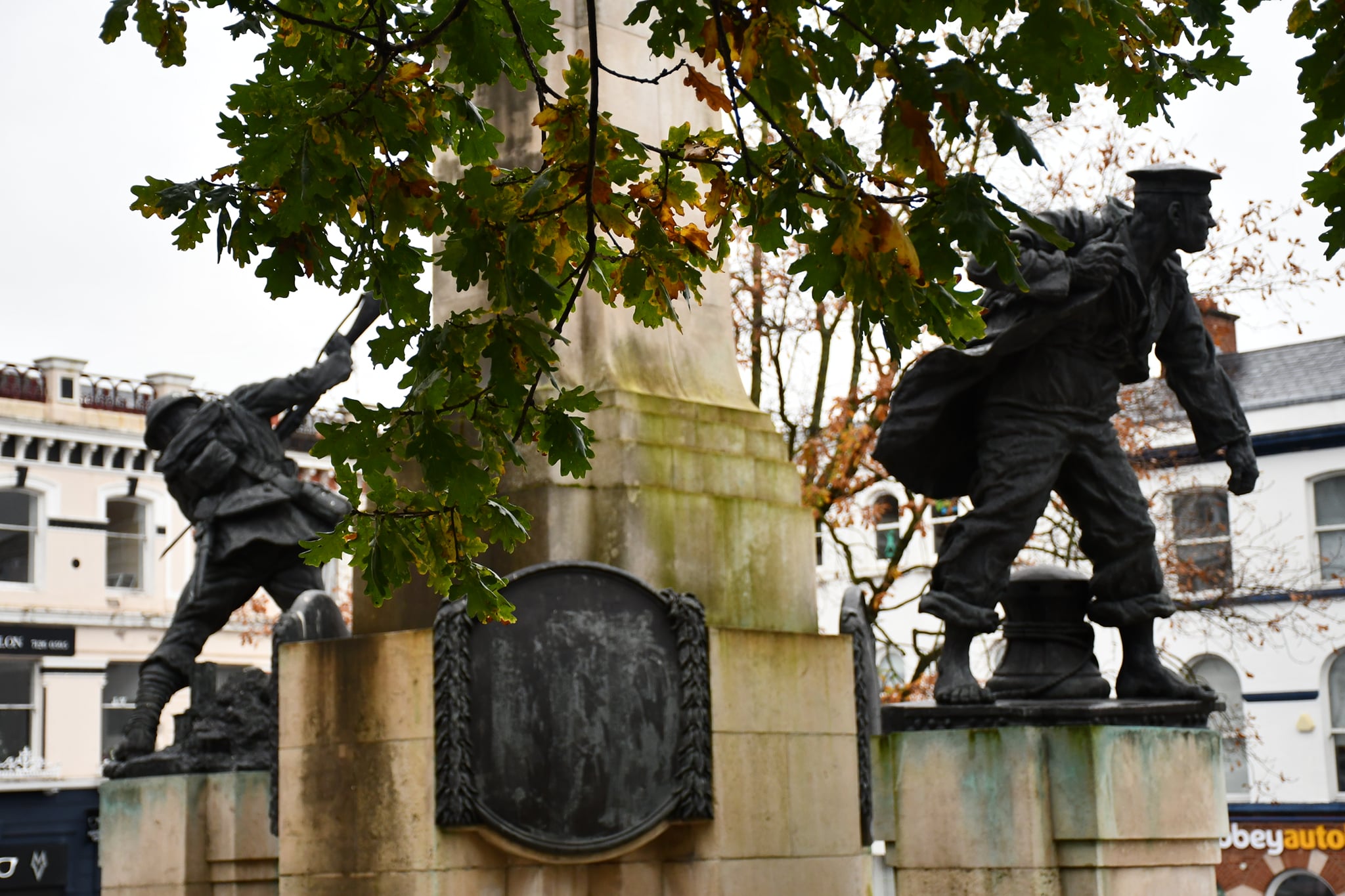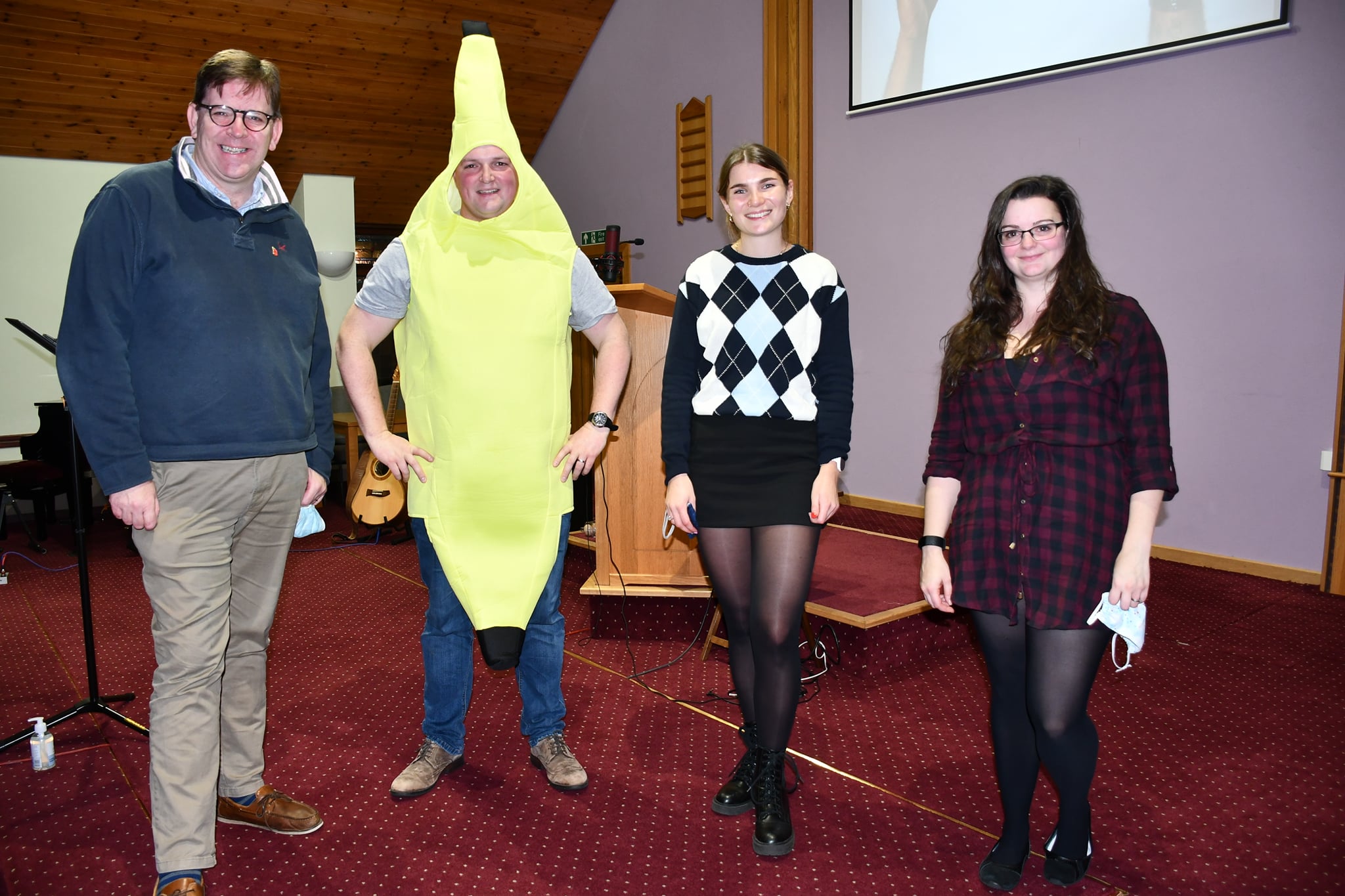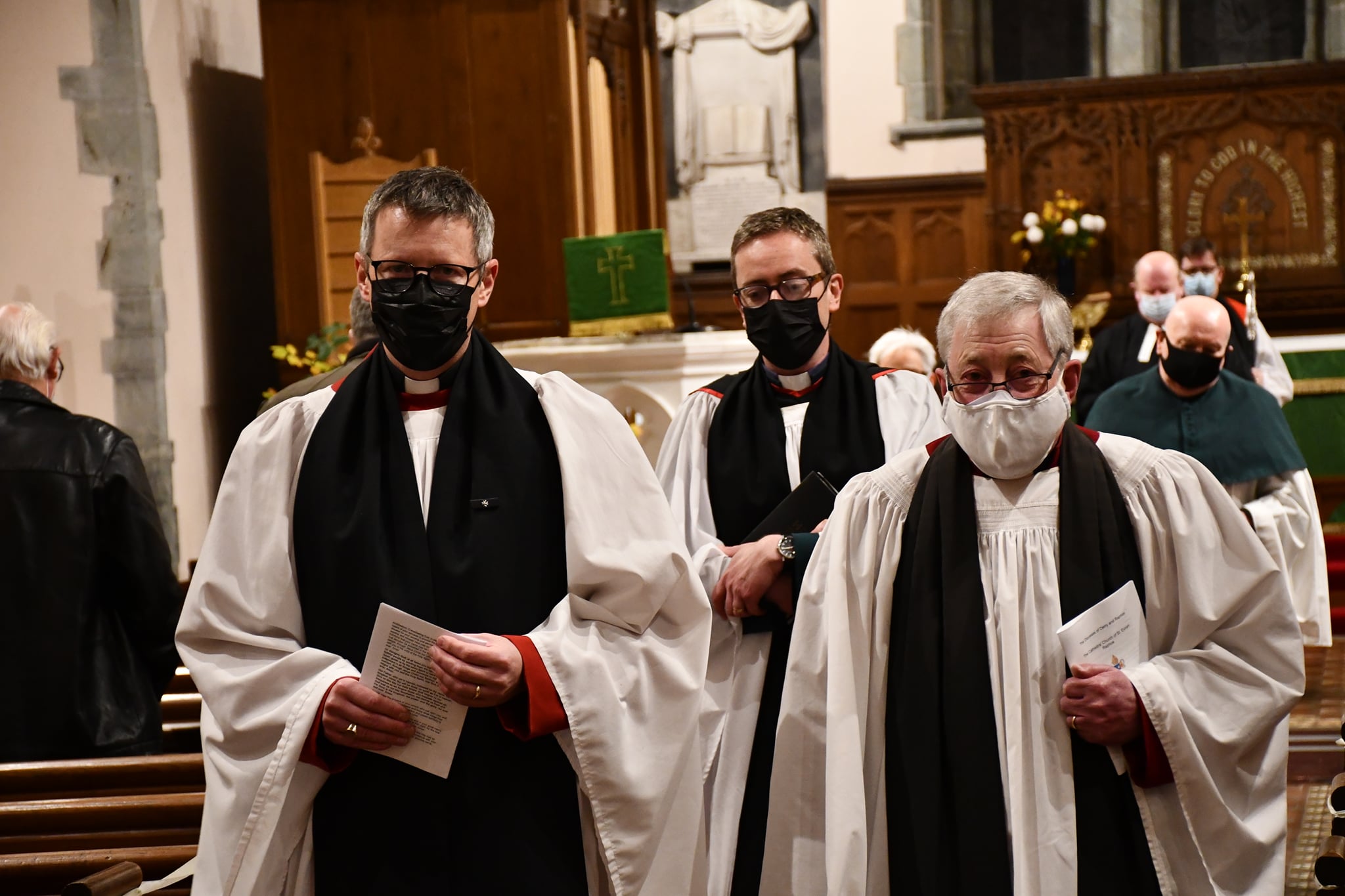Seven new trustees were commissioned to office for the Diocesan Mothers’ Union, this evening, in St Columba’s Church in Omagh. The women were commissioned by Bishop Andrew Forster during the branch’s annual Diocesan Service.
Restrictions introduced in churches to minimise the threat of COVID-19 meant the service went ahead without the usual pageantry that makes the annual service arguably the most colourful occasion in the diocesan calendar. However, former MU Worldwide President, Lady Eames, was in the congregation to lend her support.
The service was led by the Rector of Drumragh with Mountfield, Rev Graham Hare, assisted by the Rural Dean for the Omagh parishes, Rev Canon Robert Clarke, and the MU’s Diocesan Chaplain, Rev Canon Katie McAteer.
The women who were commissioned on Wednesday evening were Kathleen Finlay (Diocesan Secretary); Anne Smith (Action & Outreach Coordinator); Eva Wright (Worldwide Contact); Ivy Hartin and Averil Meehan (PROs); Janette Morrow (Indoor Members Contact); and Gladys Barnett (Prayer Circle Contact).
Addressing the socially-distanced congregation, Bishop Andrew said it was a joyful and important occasion. “These offices carry great responsibility for Mothers’ Union is a worldwide organisation whose members seek to express the Christian faith by the transformation of communities worldwide through the promotion of stable marriage, family life and the protection of children.”
The sermon was preached by the All-Ireland President of Mothers’ Union, June Butler MBE, who pointed out that it was Prisons Week for the Diocesan Mothers’ Union. Mrs Butler mentioned the “great plans” the branch had – as part of its outreach – to support the family centre at HMP Magilligan. She said she had gained some insight into the prison environment over the last 20 years, including during a case study in Edinburgh Prison (when she was “horrified” by the starkness and the “echoey noise”) and on visits to Hydebank, which she found much less austere.
Mrs Butler said Hydebank had since changed its name to Hydebank Wood College and was focusing on rehabilitating prisoners for release. “The focus,” she said, “is on helping prisoners not to re-offend, giving them skills not only to find employment but psychologically to cope with our changing world and the expectations outside prison walls.”
The experience had made Mrs Butler think about loss of liberty. There were many in the world today who were imprisoned – some physically as punishment, but sadly many more for political reasons.
“However, we mustn’t forget that many of us, and of our families and friends, may also be prisoners today. Prisoners do not have to be behind physical bars; confinement happens in many different ways but especially in our minds. It would be impossible to speak to you again, this September 2021, without mentioning COVID and the effect that it’s had on so many lives over the last 18 months. Many did – and many still do – feel imprisoned in their own homes. Mothers’ Union throughout Ireland has been doing so much to help those who were this type of prisoner. They couldn’t or didn’t feel safe being in their own home so Mothers’ Union members rose to the various challenges and did the shopping, collected medicines, made regular phone calls, sent cards, delivered goodies and small gifts – just to let them know they were not forgotten. And, of course, that’s still continuing.”
Mrs Butler also referred to those who felt lonely for reasons other than COVID. She said an MU working group – under Lady Eames – would be issuing guidance, shortly, for the lonely on for those who wanted to help the chronically lonely.
“And then there are those who are imprisoned in other ways – those who find difficulty getting head space to work out solution to what for others may be minor problems; those of us who may be imprisoned by our misconception of others; those who have real mental health issues; those who are in their personal prisons of addiction with drugs or alcohol; those who are confined by their traditions – especially in this country – and cannot see beyond the boundaries of their so-called religious background. And, of course, the areas in which Jacqui – your Diocesan President – has been working to such great effect to raise awareness about gender-based violence.”
There were dozens of references to prison in the Bible, Mrs Butler said – most notably in the case of St Paul – the “imprisoner” of Christians who came to describe himself as a prisoner of Jesus Christ. Prison was often used as a metaphor for various forms of human distress, she said. But there was a repeated emphasis on God as a God who wanted to set the captive free and break the chains of bondage.
“It is the same God who is with all prisoners today, to help them endure their time away from family and friends, and consider their future. It is God who is in the hearts of those who are in the business of rebuilding lives and re-educating for a future beyond prison walls. And it’s that God who’s made a covenant with us that we will work to help others – guided by His Holy Spirit – but also, He is with anyone and everyone of us who may feel confined in our own personal prisons, and we must all learn to lean on and be guided by Him.”
